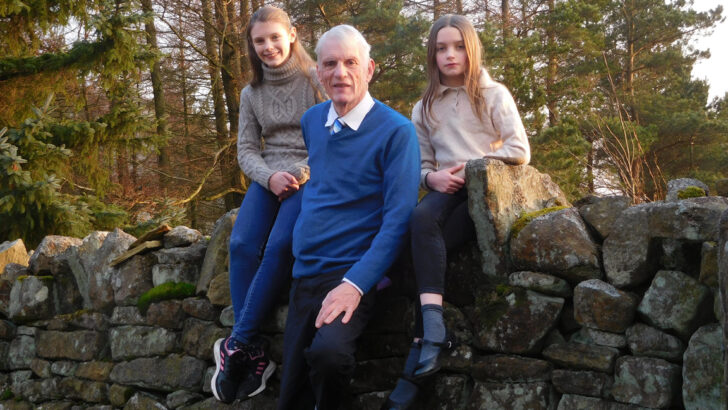The Philosophers’ Daughters,
edited by Peter Vardy
(Darton, Longman and Todd, £12.99/ €15.50)
Peter Vardy was vice-principal of Heythrop College, University of London, and now runs the largest conferences for students of Philosophy and Religious Studies in Britain.
In this thought-provoking book he has gathered a number of questions posed by his two young daughters, Petra and Thora, on life and belief and attempted to answer them himself, and also gathered additional answers from 54 leading figures in a variety of fields. The result is a fascinating book that makes one reflect on one’s own views and beliefs.
The children ask many questions about different subjects, ie., the Big Bang Theory and what could have caused it, the suffering in the world, what is the point and meaning of life, does the idea of seeking truth make sense any longer since everyone seems to have their own truth? There are many questions, some more profound than others.
I often find myself asking questions about God and an afterlife. Some days my questions lead to darkness and doubt and I feel depressed and utterly bewildered. I find myself desperately seeking reassurance and serenity. I cry out to God to help my unbelief.
Atheism
Of course, there are no satisfactory answers to be found in atheism. Atheism simply can’t be lived by. It can’t be put into practice. The well-known atheist writer, Albert Camus, believed that life had no meaning and that morality was purely relative and subjective. Sartre held similar views.
In spite of their views, both were passionately against racism and colonialism. So they believed that something was evil. Many atheists necessarily believe that there are no spiritual or immaterial aspects to human life and therefore the concept of freewill and objective morality makes no sense.
It’s a delusion. Quite simply this belief of atheism can’t be lived by. Civilisation would collapse if this atheistic philosophy were implemented. Good and evil would become totally meaningless and there would be no objective difference morally between Hitler and Francis of Assisi.
The whole notion of crime and courts of law would be rendered meaningless if we have no freedom and are merely conditioned robots. As I say, such a philosophy is totally absurd and impossible to live by.
I have often thought about the anthropic principle and the theological fine-tuning argument and I find them convincing. William Paley, the English clergyman and Christian apologist, used the analogy of the watch and the watchmaker to point to God the Creator. If you found a complicated watch lying on the ground you’d immediately assume that it had a watchmaker. It didn’t create itself.
In reply to a question about truth and whether it matters any longer Peter Vardy says: “Relativism claims that the days of absolute Truth (notice the capital ‘T’) are over and everything is relative to culture. Postmodernism claims that there is no longer any meaning of a painting, a novel, a piece of journalism – everything depends on culture, sexuality, gender, race and similar factors.
“Relativism and Postmodernism now hold such sway that the idea of absolute Truth is derided and mocked in many quarters. Truth matters – indeed, perhaps, it matters more than anything else. It may be difficult to arrive at truth and there are different perspectives on many issues all of which need to be recognised and all of which may contain an element of truth but this does not undermine the claim that absolute Truth exists”.
Petra and Thora are obviously intelligent children, and are very well presented to ask the question we would all like to have answers to, and so they ask very important questions. Their questions certainly made me think, as they will every reader of this book.


 Peter Costello
Peter Costello Peter Vardy
Peter Vardy 